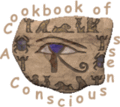My introduction to spirituality came in the summer of 1968 after I read Paramahansa Yogananda's Autobiography of a Yogi and started meditating. By the time I returned to college in September, my world had turned upside down. My previous values and ambitions had vanished and I was looking for a new, more spiritually meaningful lifestyle. The problem was, Yogananda's teachings didn't really resonate with me on a deep level, so I felt a bit like a ship without a rudder.
I enrolled in a course called "The American Transcendentalists" (or something like that). That was when I was introduced to Walt Whitman. These lines from his poem, Song of Myself, changed my life:
Swiftly arose and spread around me the peace and knowledge that pass
all the argument of the earth,
And I know that the hand of God is the promise of my own,
And I know that the spirit of God is the brother of my own,
And that all the men ever born are also my brothers, and the women
my sisters and lovers,
And that a kelson of the creation is love
Here was a poet who expressed in the purest and simplest terms exactly what spirituality meant to me. There was no dogma or religion attached to them whatsoever: just the naked experience of the "peace and knowledge that pass all the argument of the earth."
Later, I stumbled across Richard Maurice Bucke's Cosmic Consciousness. Bucke was a contemporary of Whitman's and his most ardent disciple. What struck me most forcefully about the book was the fact that the author was confirming what I already felt about Whitman - that he had experienced cosmic consciousness, or enlightenment if you prefer.
I also read some of Walt Whitman's critics. Some said he had an enormous ego; others examined the supposed homosexual overtones of some of his work. The criticisms never really bothered me because I had already come to believe that enlightenment does not magically turn one into an imagined ideal, but that it does change one's perspective on life from the limited to the all-embracing.
A year later, I went to India, seeking enlightenment. I believe I found it, too, but not in the way I or you may imagine it to be. Yes, there were peak experiences, but the ultimate realization was that, as Walt Whitman wrote: "a kelson of creation is love." It is the glue that binds us together and our ultimate salvation.
I've bumbled my way through life since then, but as I look back, I realize that the times I have felt the most at peace with myself and "at one with the universe" have been the times when I have loved the most. Walt Whitman was not the first or last person to have revealed the truth about the power of love, but he is the first person who revealed it to me. For that I am eternally grateful to him.
Wil Wordsmith (a pseudonym, obviously) has been interested in spirituality and related topics since the 1960s. He taught hatha yoga in the early seventies. After that, he devoted himself to raising his first family. In 2004, after receiving a remarkable healing at the hands of a Balinese shaman, Wil studied energy medicine and discovered its power himself. Wil now lives with his new family in Cambodia, where he works as a writer.

Post new comment
Please Register or Login to post new comment.